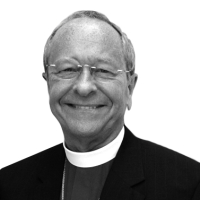It’s been a pretty big week for legendary HIV/AIDS activist Larry Kramer, who celebrated his birthday on June 25, just one day before the Supreme Court’s landmark decision in favor of marriage equality. For a man who has lived with HIV (the virus that causes AIDS) for many years, it may have come as a bit of a surprise to him to have lived to the ripe old age of 80. Countless numbers of Kramer’s friends were not so lucky, and like so many gay men in the ’80s and ’90s, he nursed to their deaths (and all-too-quickly buried) many of his friends.
Larry Kramer’s story is movingly—and unflinchingly—told in a new HBO documentary about his life and remarkable achievements against overwhelming odds—not just for gay men, but for all of us. Larry Kramer, In Love & Anger premieres tonight. Brilliantly directed by Jean Carlomusto, it chronicles the life of this complex, passionate and fearless activist.
Larry Kramer reminds me of an Old Testament prophet: irascible, tough, morally righteous, certain of the truth he is telling, and willing to do almost anything to get his message heard. We see Kramer in the first decade of the HIV/AIDS pandemic when gay men were contracting and then rapidly dying from diseases known only to those with devastatingly compromised immune systems.
Larry founds the Gay Men’s Health Crisis both to signal to the world that this is a crisis and to begin to provide support to those whose deaths are attracting little attention or sympathy. Kramer rails against a President of the United States who will not publicly say the word “AIDS,” despite the fact that over 40,000 Americans have died from it. He screams—yes, screams—at audiences to call this what it is: a plague. And Kramer knows why this health crisis isn’t getting any attention or funding: because those most affected are people the society deems disposable.
Kramer is out-of-control, in-your-face, crazy-mad about it, and says so at every possible opportunity.
Impatient with the Gay Men’s Health Crisis’s lack of progress—both societally and medically—Larry begins to fight with the leadership of the organization he founded. Not being one to mince words or to hold back harsh words for anyone not fighting as hard as he is, Larry leaves GMHC and founds Act Up!—what might be called the commando unit in the fight to stop AIDS. Act Up!’s language and tactics horrify many—including many gay men!—but Larry is on a mission. Act Up! unrelentingly pounds the American public health system for not doing more, and doing it faster.
During this time, Kramer is working on a way to chronicle the history of this plague and the public’s indifference to the deaths of so many. Being an artist, writer, and poet, Kramer writes a brilliant, searing, and heartbreaking play, The Normal Heart. But there is nothing “normal” about the raw emotion packed into this semi-autobiographical drama. Kramer spares no one—not even himself—from his biting critique of what went wrong in America when HIV invaded us.
In interviews recorded as recently as a year or two ago, this documentary allows us to see and hear Larry’s reflections on that terrible time, before we knew what caused AIDS and how it was transmitted, when there was so much fear and so much hate. Early in the film, we see Larry rather mercilessly attacking Dr. Anthony Fauci (of the federal Centers for Disease Control) for the lack of progress in AIDS research, and then later hear Dr. Fauci crediting Kramer’s raging advocacy for turning the tide against HIV.
We see Kramer chastising the gay community, which seemed to him to be valuing uninhibited sex over their health and lives. Finally, we see recent interviews of Larry while he was in the hospital during a medical emergency caused by his long-term infection with HIV (and the often debilitating drugs used to fight it).
Thinking back on his fight with Gay Men’s Health Crisis, Larry rather wistfully says, “We destroyed each other. We destroyed the greatest thing we had created.” The valiant and courageous warrior now looks frail and vulnerable (as we all will be someday), and his judgments seem a bit gentler—on himself and on us all. But the prophet’s fire is still there, just under the surface. He’s still wilder and more passionate than anyone else, but nevertheless a bit softer.
It is said that a prophet is not honored in his own land. Even though he’s become more famous in recent years, many gay men, and others who live with HIV, probably don’t know who Larry Kramer is, or that he saved their lives. They have no idea that he’s the one who pushed the government to develop the “cocktail” of drugs that now makes their viral loads undetectable and their lives livable. And that’s a shame, because this is a prophet who should be honored by his own tribe and by the people of this land.
We gay, lesbian, bisexual, and transgender people are often woefully ignorant of our own history. Many of our real heroes are unknown and “lost” to our younger generation. Thanks to HBO and Larry Kramer: In Love and Anger, the profound legacy of this hero will endure.
Thank you, Larry, for giving us your passion, your life, your far-from-normal heart. And Happy 70th Birthday!
The Rt. Rev. V. Gene Robinson is the retired Episcopal Bishop of New Hampshire and a Senior Fellow at the Center for American Progress, Washington, D.C. Follow him on Twitter @BishopGRobinson






